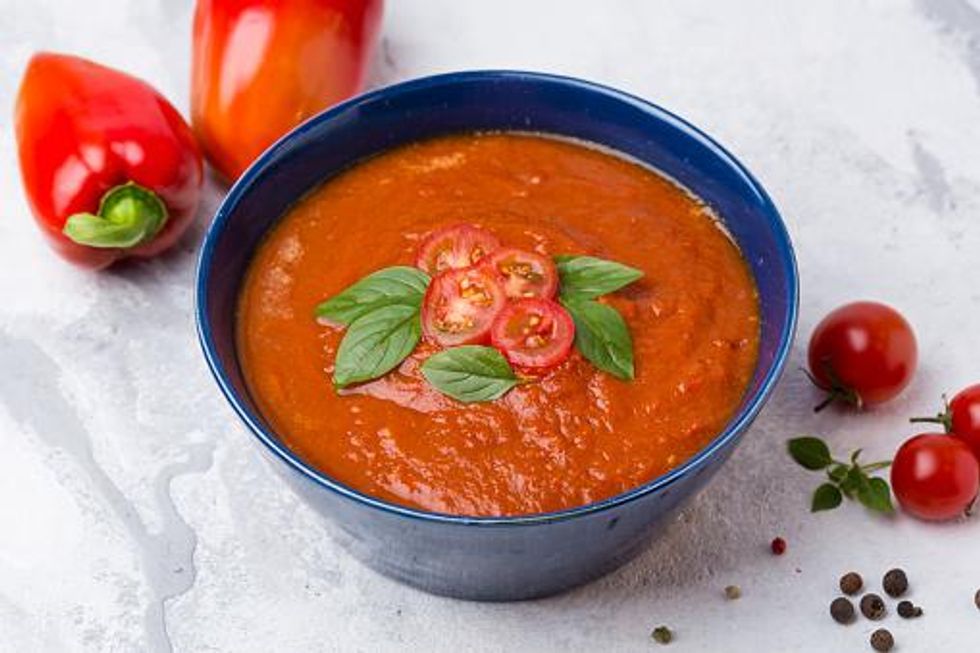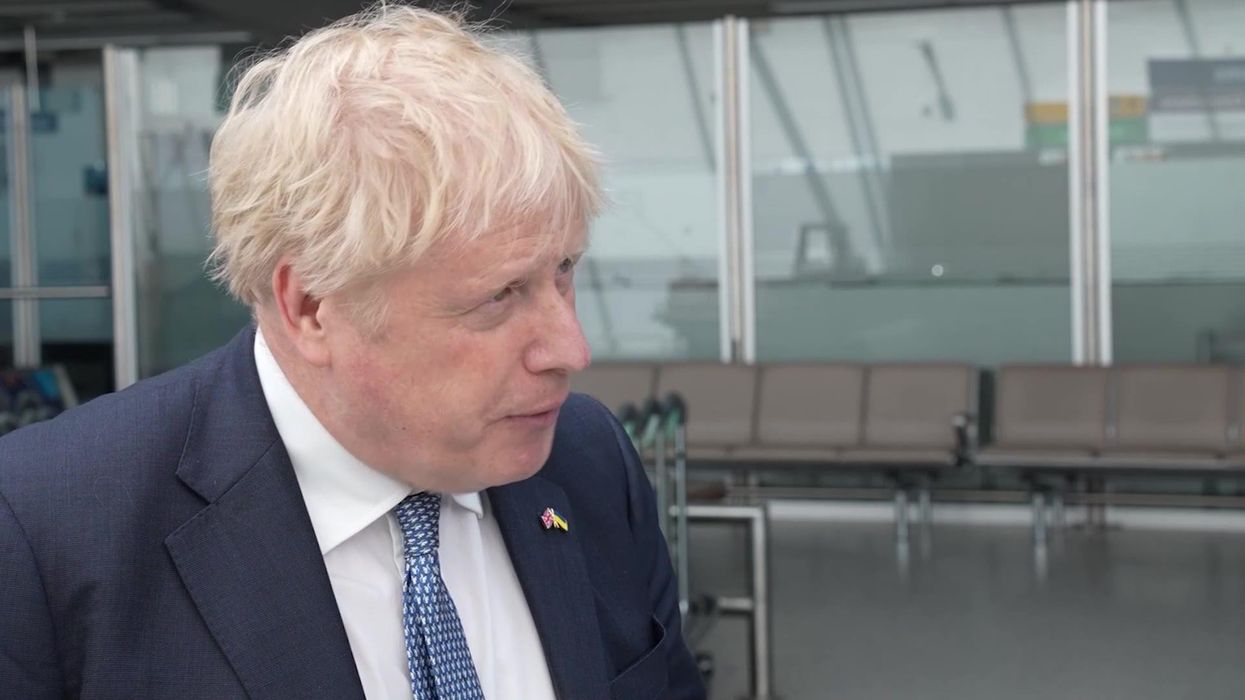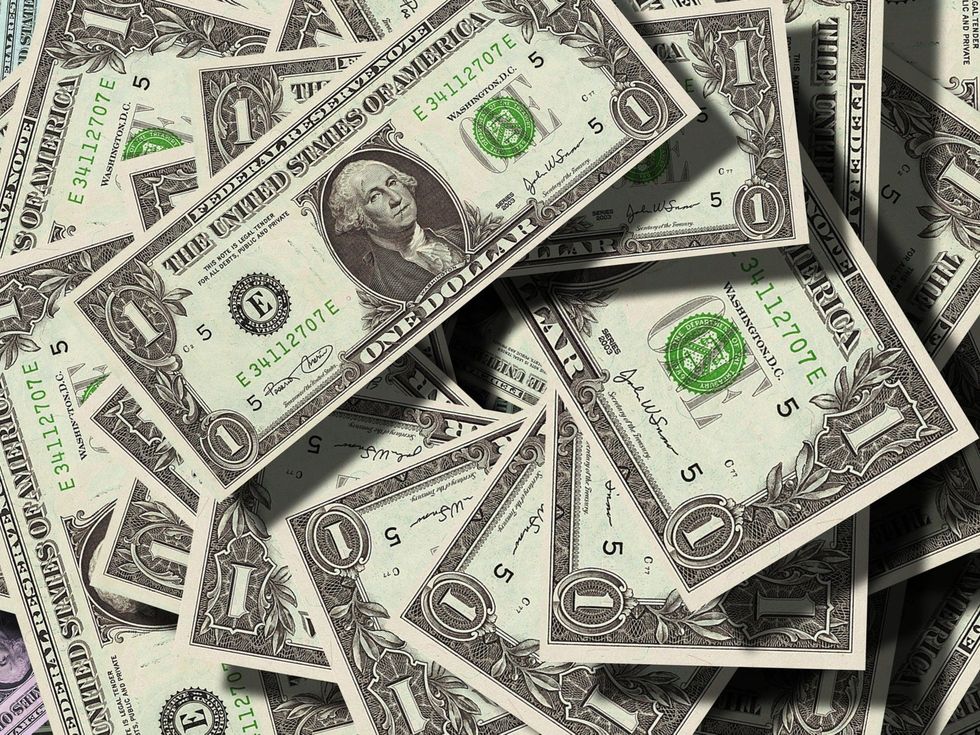Becca Monaghan
May 06, 2022
Johnson says country is going through a 'tough patch' due to cost ...
Independent TV
The cost of living crisis continues as food prices skyrocket across the nation.
Grocery prices have seen the biggest increase since December 2011, with a notable 5.9 per cent inflation in April vs last year. Additionally, four in ten people have bought less food in the past two weeks alone.
Earlier this week, Environment, Food and Rural Affairs Secretary George Eustice, said that value brands would help households "manage their household budget", which Treasury minister Pat McFadden described as "woefully out of touch".
During the car crash interview, Eustice suggested that UK households had the lowest food expenditure in Europe, thanks to a "very, very competitive retail market, with ten big supermarkets".
Sign up to our free Indy100 weekly newsletter
He added that "the four main ones competing very aggressively - particularly on some of the lower-cost, everyday value items for households, so things like spaghetti and ambient products - there's a lot of competition to keep those prices down".
Reacting to Eustice's comments, deputy Labour leader Angela Rayner said the Tories "haven't got a clue".
Here are six useful supermarket hacks to help save money while you shop:
Avoid convenience stores
While it may not be possible for all, avoiding convenience stores can save hundreds of pounds each year.
Which? found that those who frequently shop at convenience chains can spend 9.5 per cent more. The outlet compared the average cost of 48 items at Tesco Express and Sainsbury's Local to their leading supermarkets.
They discovered that people spend a staggering £322 more throughout the year when shopping in the smaller Sainsbury's stores. Meanwhile, Tesco Express shoppers would spend an average of £279 more.
Price comparison apps
There's an app for everything, even when scouting out the cheapest products on the market. There's also an innovative app that helps people build their savings using change that they perhaps wouldn't miss.
Chip is a free app that rounds up each purchase to the nearest pound. For example, if a cup of coffee is £3.50, the extra 50p would be automatically put away into your savings account.
According to the company, in 2021, the average Chip user can save around £3,000 in 2021.
Buy vegetables that are in season

A nutritionist has revealed the best way to eat well on a budget is to go for what's in season.
Jessica told the Metro that veg in season tends to be cheaper. She also advised shoppers to try out the wonky veg aisle and visit local farmer's markets.
"Another tip is to purchase the bulk bags of staples such as carrots or potatoes, which are usually more affordable and keep well when stored," she explained.
"Most supermarkets have 'imperfect picks.' These are fruits and vegetables that may be bruised or don’t present as well.
"They are usually discounted but contain the same nutritional value."
Get rewarded for your spending
Take advantage of stores and their loyalty cards. These allow customers to earn points and save money while they shop.
The loyalty schemes often give exclusive discounts, rewards and competitions to those signed up.
Which? revealed that shoppers could save between 50p (Sainsbury's Nectar) and £5 (Iceland) for every £100 spent.
Stock up when you can
Grocery costs can fluctuate week-on-week, in some cases by up to 284 per cent.
Stocking up when possible works particularly well for cupboard essentials and frozen items to avoid sudden price hikes.
Compare the price per unit
She used some of the money to buy a new car and a house
Gerd Altmann/PixabayAndy Webb at CleverCash took to Twitter with one of his top supermarket hacks.
He explained: "Simply by checking the shelf label in the aisles or the slightly smaller print online you can quickly see just how much the pack your buying costs per standardised unit – normally something like per 100g or per 100ml.
"So there’s no need to work out in your head whether the 1.25kg pack at £2.60 is actually better value than two 500g packs at £2.15. The maths has been done and is displayed right there below the price. (It’s actually the bigger pack at £2.08 per 100g vs £2.15 per 100g)."
Have your say in our news democracy. Click the upvote icon at the top of the page to help raise this article through the indy100 rankings.
Top 100
The Conversation (0)















